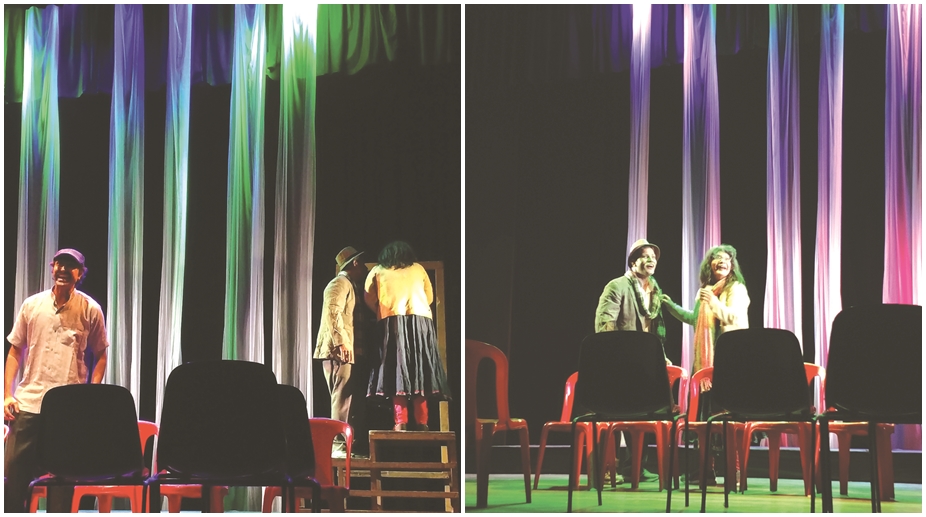Staging Eugene Ionesco has always been a challenge to theatre directors considering the fact that his most presented play, The Chairs, has been enacted multiple times by performers across the world, sometimes with success and at times, otherwise. These days when timeless classics are enacted on stage, Little Thespian’s seventh National Theatre Festival — Jashn-E-Rang — supported by the Union ministry of culture, brought under its banner brilliant theatre groups and their plays in Hindi, which were recently staged at Gyan Manch.
While the event spanning 3-8 November, saw some riveting performances in Roohein, Manto Ne Kaha, Sadgati et al, a real challenge was presenting The Chairs in Hindi. Acclaimed director Mustaq Kak and Amateur Theatre Group, Jammu, gave a soulful rendition of the French playwright’s absurd piece. With no departure from the original script, Kak kept the stage simple with chairs dominating and increasing in numbers as the plot progressed. The Old Man played by Sunil Sharma had the most philosophical dialogues remaining true to the original and he cut a fine picture shifting between the occasional romantic and defeated man; one who is still basking in the glory of the righteous decisions and little comforts that life gave him.
Standing as a foil to the Old Man is the character of the Old Woman. Essayed by Sumana Kumari, she is a dreamer of things that could have been, of things that could have promised her a more becoming and luxurious life, of things that could have taken her pragmatic husband to heights of fame and of things that could have changed this tragic loneliness of the couple, because they once had a son, or so she thought.
Advertisement
One would have, however, been slightly pleased had the ordinary been played out in a more subtle way. For one the chairs could have been used better by changing their positions according to the importance of the invisible guests. But one would tend to forget that, with Kumari delivering a spectacular performance as the Old Woman. Flirtatious, eccentric and deeply devoted to her husband, she doesn’t miss one single emotion making the audience laugh along with her as she dances around on the stage, at times rebuking her husband but doing all of these lovingly.
Minimum props adorned the stage, some lights, mostly depressing red and green; chairs, three stairs and a window. The lights changed keeping in sync with the moods of the characters but mostly the play was dialogic. As the “guests” arrive, the two characters speak to them and reminisce cryptically about their lives and the high point is achieved when the invisible emperor arrives and the couple happily commit suicide thinking that their last revelation would be read out to the world by the orator who comes on the scene. As the orator starts, the audience realises that he is mute and therefore, the revelation is lost to the world as Ionesco had wanted it originally.
If anything this rendition retained the motif of silence in the end, which was very crucial to the original script. And to stage such a classic in Hindi, taking care of each and every dialogue and emotion is something worth applauding.
Advertisement











